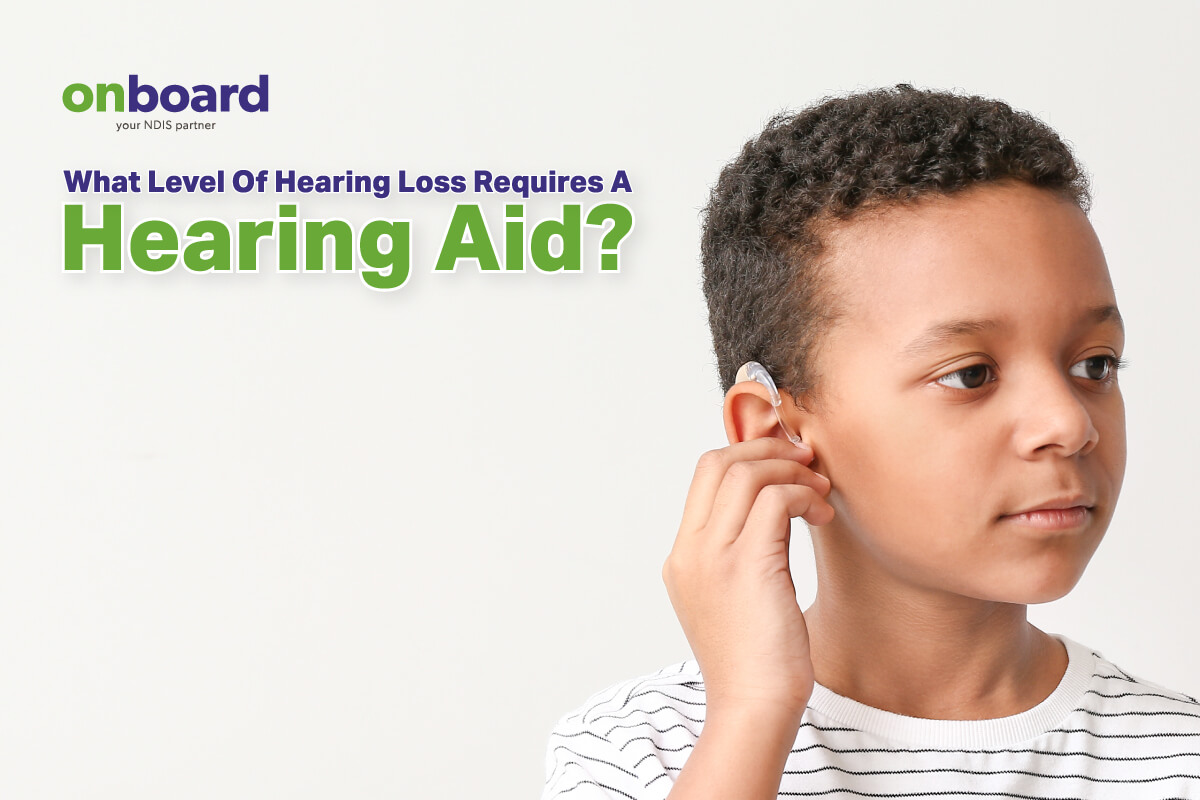One in six Australians experience hearing loss, and according to government estimates, this is set to rise to 1 in 4 by 2050.
Hearing loss can severely impact daily life, and it can also affect people of all ages. Living with mild or permanent hearing loss impacts a person’s ability to communicate, learn, travel, and gain access to self-care and other services. The good news is that hearing loss is entirely treatable. With the right hearing aid, you can easily overcome even more difficult cases of hearing loss.
So what level of hearing loss requires a hearing aid? And when is hearing loss considered a disability under the National Disability Insurance Scheme?
Here we answer those questions and more.

